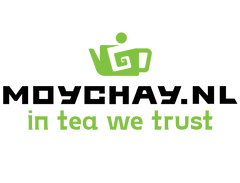
In fact, the answer to question is neither obvious nor simple -- simply because there are many nuances involved. If we speak in the most basic terms, then of course, tea that carries a "bio" or "organic" label is, as a rule, considered organic -- especially if the producer is conscientious and genuinely complies with all the standards, and not just carelessly sticks a label on their packaging.
Unfortunately, there have been instances where the contents did not match the certification on the label. But it's important to understand that this mismatch is not always deliberate -- sometimes it's a mistake, not necessarily on the part of the company owner. It could be related to the raw material itself.
Be that as it may, since I am personally involved in sourcing tea from producers, and I am also a producer myself, I use several important criteria for evaluating not only the quality, aroma, effect, and taste of the tea -- but also its natural safety.

Laboratory Testing and Plantation Visits
The very first and most important criterion is laboratory testing. No matter how much you trust a producer, no matter how many medals, certifications, or lab reports they present, if this is not a very large company with a strong reputation, I still prefer to conduct at least one test myself in an independent laboratory. And I believe this is something every self-respecting tea entrepreneur should do.
Yes, it's not cheap. You may have to part ways with some of your previously trusted suppliers, and you might stop drinking certain types of tea altogether. But it is necessary.
To test tea, we work with German, Dutch, Chinese, and Hong Kong laboratories -- depending on the circumstances and the requirements for each case. Beyond that, I always visit the plantations in person. If it involves tree-grown tea, I look at the tea gardens, I inspect the soil, I examine the condition of the tea trees, how quickly the buds are growing, and how the shoots look.
In most cases, you can visually identify herbicide use on plantations -- especially herbicides -- because barren, lifeless soil with either no vegetation or very little vegetation is quite easy to notice. Often it's even possible to recognize it by the look of the land alone.
The same goes for synthetic growth stimulants and other chemicals -- their use is also visible to the naked eye. Still, even this is not a guarantee that the tea is clean. If you're not sure, any producer can show you any plantation -- but that does not mean the tea you are being sold actually comes from there.
That is why it is extremely important to test each tea batch directly.

European Standards and Certification
There is also the concept of the European standard -- the European certificate -- which is not necessarily the same as "organic," but in practice it serves as a guarantee of safety and marks teas with a very low level of herbicide use. It also confirms that the tea fully complies with EU quality standards.
(If you work in the United States, that would refer to FDA-approved teas or USDA Organic certification.)
So this can also be a perfectly good tea. In fact, a great deal of tea that is sold in the European Union -- and here I am referring specifically to the EU because that's where we operate -- is not certified organic but is still quite clean.
This kind of tea also has its own nuances. It absolutely must be sent to the lab, brewed and tested, to ensure that the levels of herbicides and pesticides that are present are within the permitted limit. There is an officially established acceptable threshold.
If the tea stays within this threshold, it is considered safe. And although such tea is not fully organic, it still complies with the strict standards of the European Union.

Personal Reflections on Tea Safety
Here I would like to make an important point about safety in general. I myself have been in the tea business for almost 20 years, and I've been passionate about tea for about 25 -- maybe 23 years drinking good tea regularly.
So I can say with confidence that over the years I've drunk a huge amount of tea that did not meet any modern certification standards. And I've consumed it in such vast quantities that, if it really were seriously harmful to health, and if I had been drinking just "regular" tea all this time, I probably wouldn't be around anymore.
But of course -- and I stress this -- that cannot and should not be considered an evaluation criterion. This is entirely subjective. People have different levels of health, different immune responses, different allergies, and different reactions to tea. And of course, this in no way excuses or invalidates the fact that it is always better to drink organic tea -- or at the very least tea that complies with European standards.
Because in the end, your health always matters more.





